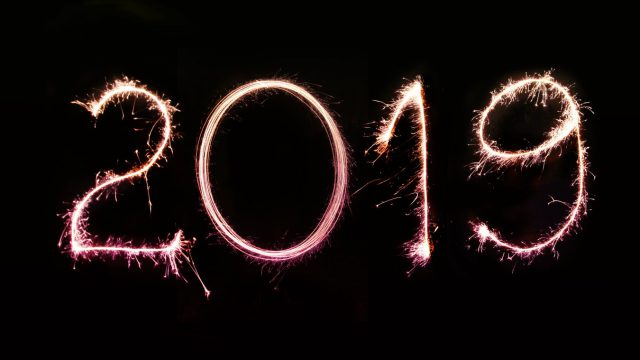As a child, I used to take the New Year’s Resolution thing quite seriously. On New Year’s Eve, amid the old year retrospectives on the radio and remaining Christmas paraphernalia, I would settle down and write a list of perhaps ten resolutions. It felt quite purposeful, for a few days at least.
As a young adult, though, I became disillusioned with resolutions. It seemed that, every year, I would resolve to do or not do the same things, because my resolutions just didn’t stick. It all felt pointless and demoralising. I resolved to not resolve.
This non-resolving went on for many years, until a few years ago I had a complete turnaround.
It began with Resolution Revolution, a blog post I read in 2007. The challenge was to quit resolutions but to choose one word to shape the year ahead. As I wrote about on Sheffield Flourish a couple of years ago, I’ve been doing that ever since, and am just mulling over my word for 2019.
The second thing that reshaped my New Years has been Leonie Dawson’s Shining Life Workbooks. I’ve been following this hippie entrepreneur for some years, and a few years ago I bought the workbook for the first time. I worked through the initial part of the book, thinking, this is great! It takes you through many different aspects of your life, asking you to dream and journal about how you want them to be in the coming year. So far so good.
Then I stumbled across the alarming invitation to set 100 goals for the year! I reflected on my childhood lists of resolutions and thought, this is never going to work. However, by then I was most of the way through the workbook, so I thought, well OK then, nothing to lose by giving it a go.
That first year I was fairly easy on myself, picking a range of easy to harder goals from my earlier dreams in the workbook. By the end of the year, I was stunned to have completed more than 70 of them.
Here’s the thing: research shows that a) writing down and b) regularly reviewing your goals makes you way more successful at achieving them than just thinking about them. This seems to be borne out by the workbooks. While I’ve never met all of my 100 goals, I’ve completed 70+ each year. All I do is write them down, read back over them every so-often, and – the best bit – tick them off once I’ve done them. I guess the fact that my goals come from my dreams helps a lot, because, however easy or challenging they are, they are about what I truly want to achieve.
What does all this say about me? Firstly, resolutions really don’t work for me. I think because they’re often about not doing something, which immediately gives me trouble. We just don’t hear the “not” in a sentence, and fixate on the thing itself. Just try telling a dog you’re not going for a walk. The dog will ignore the “not” and get very excited about the prospect of the walk that’s not going to happen. Humans are the same.
Goals are different. They are specific actions that can be measured and accomplished. You know when they are done, whereas resolutions don’t really have a timeframe or end date. They just wag their fingers at us disapprovingly. So, I respond much better to goals.
I also don’t mind at all that I set about 25 goals each year that I don’t achieve. Who cares when I’ve achieved 75 others? At the beginning of each year, I have that same feeling of “this is never going to happen”. However, a year is a long time, and gradually I accomplish things, and I can look back at all my highlighted goals and think, yeah, I did those!
In a life where mental health is uncertain and life has to be put on hold more often than I like, that is a good feeling.



